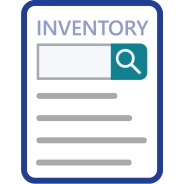
Choose from 5 options:
Some introductions of industrial chemicals don't require you to register your business with us or categorise your introduction.
From 24 April 2024: some soap makers no longer need to register with us - see criteria below.
Some chemical introductions don't require you to register your business with us – such as the chemical introductions outlined below. These chemical introductions also do not need to be categorised.
If this applies:
However, if you also introduce other chemicals that are not covered on this page, then you must register with us and these introductions must be categorised with other regulatory obligations met.
You don’t have to register your business with us, nor categorise your soap chemical introductions if you only make soap chemicals that meet all 4 criteria below – these soap chemical introductions are excluded introductions.
These criteria relate to the ‘soap chemical’ that is made by mixing lye (sodium hydroxide or potassium hydroxide) with an oil or fat. That is, the criteria do not apply to the colours, fragrances or other additives that you might add to make your final soap product.
You do not need to register with us, nor categorise your introduction, if you sell products that you made by blending ingredients that you only bought within Australia. This is because the supplier or manufacturer of those ingredients that you bought from are already registered with us. But if you bought any of the ingredients from overseas, you must register with us.
Blending is commonly described as the process of mixing two or more industrial chemicals together without producing a chemical reaction.
Read about the difference between blending and manufacturing
If you only introduce chemicals that meet our definition of a naturally-occurring chemical, then you don't need to register with us.
This is legally defined as an unprocessed chemical occurring in a natural environment, or, a chemical occurring in a natural environment that is extracted without chemical change by:
It's important to note that chemical ingredients that are derived from natural sources, such as plant essences and minerals, may not meet this definition because of the process used to extract the chemical from its source.
Ingredients that are labelled or marketed as ‘natural’, ‘organic’, 'herbal' or ‘pure’ often do not meet the legal definition of a naturally occurring chemical.
A non-isolated intermediate is an industrial chemical that is all of the following:
Example: your chemical IS a non-isolated intermediate
The chemical is contained wholly within a reaction vessel, its ancillary equipment, and any equipment through which the chemical passes through during a continuous flow or batch process as well as the pipe work for transfer from one vessel to another for the purpose of the next reaction step.
Common examples of chemicals that are NOT non-isolated intermediates
A chemical:
An incidentally introduced chemical is an industrial chemical that is introduced – either with or subsequent to the introduction of another industrial chemical – and has no commercial value separate from the other industrial chemical. The incidentally introduced chemical is a result of any of the following:
Example – incidentally introduced chemical
A chemical by product or impurity that remains in a mixture with an industrial chemical as a result of manufacture, offering no commercial value separate from that industrial chemical, and being uneconomical to remove as part of manufacture or before importation of that industrial chemical.
The release of a chemical from an article, where the article was not designed to do this, is an excluded introduction.
Examples include:
One the other hand, a ballpoint pen is designed release a chemical. If you import or manufacture ballpoint pens, you must register your business and categorise your introduction.
See more in our articles section below.
These are excluded introductions if it is a transhipment chemical that:
These are excluded introductions if the chemicals are all of the following:
This means the industrial chemical is only for individual use and NOT in any way connected with a business activity.
Learn more about chemicals only used for personal use
If you are a foreign business and use an Australian distributor who is already registered with us, you do not need to register.
Read more on our foreign businesses page
If you only import or manufacture articles that are not intentionally designed to release chemicals, you're not required to register nor categorise your introduction. An example of an article is a table. An example of a product that is not an article is a ballpoint pen.
Read our definition of an article
If your chemical has no industrial use, then we don't regulate it. You'll need to seek advice from the relevant regulatory authority. For more information, read 'What is an industrial chemical'.
Contact us to ask a question, request information or give feedback.